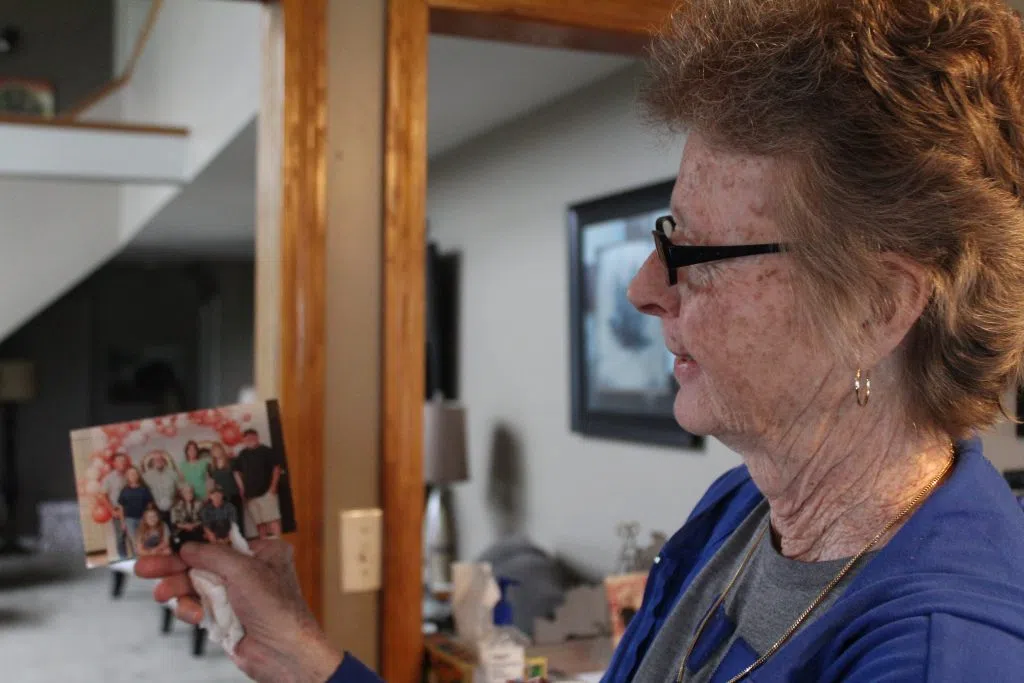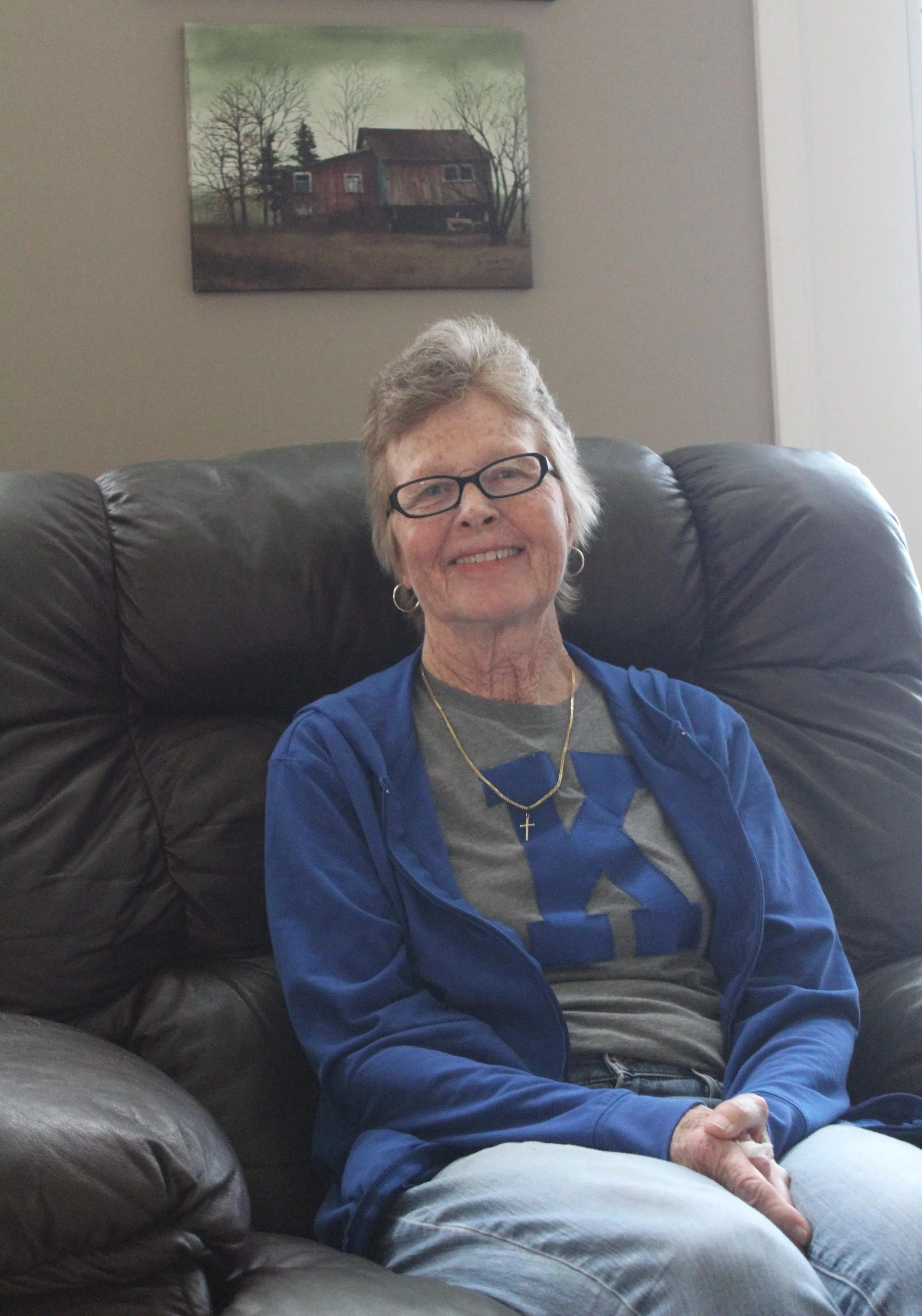By MICHAEL CRIMMINS
Glasgow News 1
It’s the early months of 2024. The air has the cool, customary chill waiting to give way to those of spring and summer. Patti Page and her husband Randy sit, waiting, in the truck as their cows mill nearby.
Just now Patti’s phone rings: It’s Dr. Florin Andreca.
This is the phone call she has been expecting ever since she found a lump in her left breast one night as she lay in bed in October of 2023.
“In the cow pasture, he called me and said ‘Mrs. Page, I’m sorry to tell you but it’s cancer’ and I said ‘Do What?’” she laughed, recalling the moment from her living room chair in the house her husband built in 1989. “I said ‘What do we need to do?’”
Even though Patti’s 2023 yearly mammogram came back okay, she was diagnosed with triple-positive invasive ductal carcinoma, the most diagnosed form of breast cancer. Triple-positive breast cancer is considered an aggressive form of cancer but also one that’s responsive to treatment, according to the National Breast Cancer Foundation.
About 80 percent of all breast cancers are invasive ductal carcinoma, according to the American Cancer Society.
“Dr. Andreca said we had a six-week time span…so we got on it.”
Thankfully, Patti said, she was in the care of the T.J. Regional Health Oncology department — about 36 miles from her home in Columbia.
“The doctors and nurses at T.J…are a blessing to everybody; they’re just so good,” Patti said. “I didn’t mind going to my treatments because I liked seeing them, and that’s crazy.”
Musing on her team of doctors and nurses, Patti recalled the moment her grandson, Trenton, won Kentucky President for the Future Farmers of America.
“He was running for state office and I was watching it on my phone – and I never will forget this – and [Trenton] was [elected] the state president of FFA, and those nurses were jumping up and down,” Patti said with a smile.
On the advice of her doctors, she got a partial mastectomy on April 10, 2024. A month after that she had a port put in her chest, which she still has; the next day, Patti recalls, she began chemotherapy — something she would do every Thursday until August.
After 12 cycles of chemotherapy, 19 bouts of radiation treatment, which she had five days a week until October 2024, and a year of hormone therapy, she sits watching her game shows cancer free.
“I have to take this pill…for five years,” Patti said. “They told me that if you don’t have symptoms for five years you’re considered cancer free.”
“I’m just thankful to have hair. I was bald headed [before]. It’s silly but that bothered me more than anything,” she added, running her hand through her short hair.
Looking back, Patti recalls the support of her family during this year’s journey, saying that even her 90-year-old mother served as her “riding buddy” while traveling to Glasgow.

Patti said throughout her year full on radiation, chemotherapy and hormone therapies she “never went to her appointments alone” and said family support helped keep her strong during the tumultuous time. Michael
“I never had to go by myself; I never went to my appointments alone,” Patti said. “My family [are] workaholics…but from daughter-in-laws to Trenton, my grandson, went with me”
“Except for the good Lord above, I think family support is so important. My family made me strong; they’re my everything,” she added thoughtfully.
She also mentioned the importance of self examinations, which is the only reason they found her cancer “early,” since Patti found the lump two months after her yearly mammogram.
“One thing I’ve always done is keeping up with my mammogram every year,” Patti said. “[Self examinations is] one of the most important things.”
Throughout it all Patti said it is important to find your support, regularly self-examine and to keep a positive outlook “because things could always be worse.”
Visit here for more information on invasive ductal carcinoma.
__________________________________________________________
CARE Power Hour is an event to celebrate cancer survivors, their families, caregivers, providers, and friends. The lavender ribbon is a general symbol of awareness for all cancers. It serves as a unifying symbol, promoting empathy and support for anyone affected by cancer regardless of the specific type. Proceeds from CARE Power Hour directly benefit Community Medical Care’s Breaking Barriers to Care Program, which provides assistance to cancer patients for the most common barriers to care such as transportation and supplemental nutrition. Purchase tickets to the event here.

Comments